If the soil is healthy, food production will be safe, people will be healthy and future generations will be healthy. Therefore, there is a need for an organic soil enhancement strategy with a vision for 2050 and beyond.
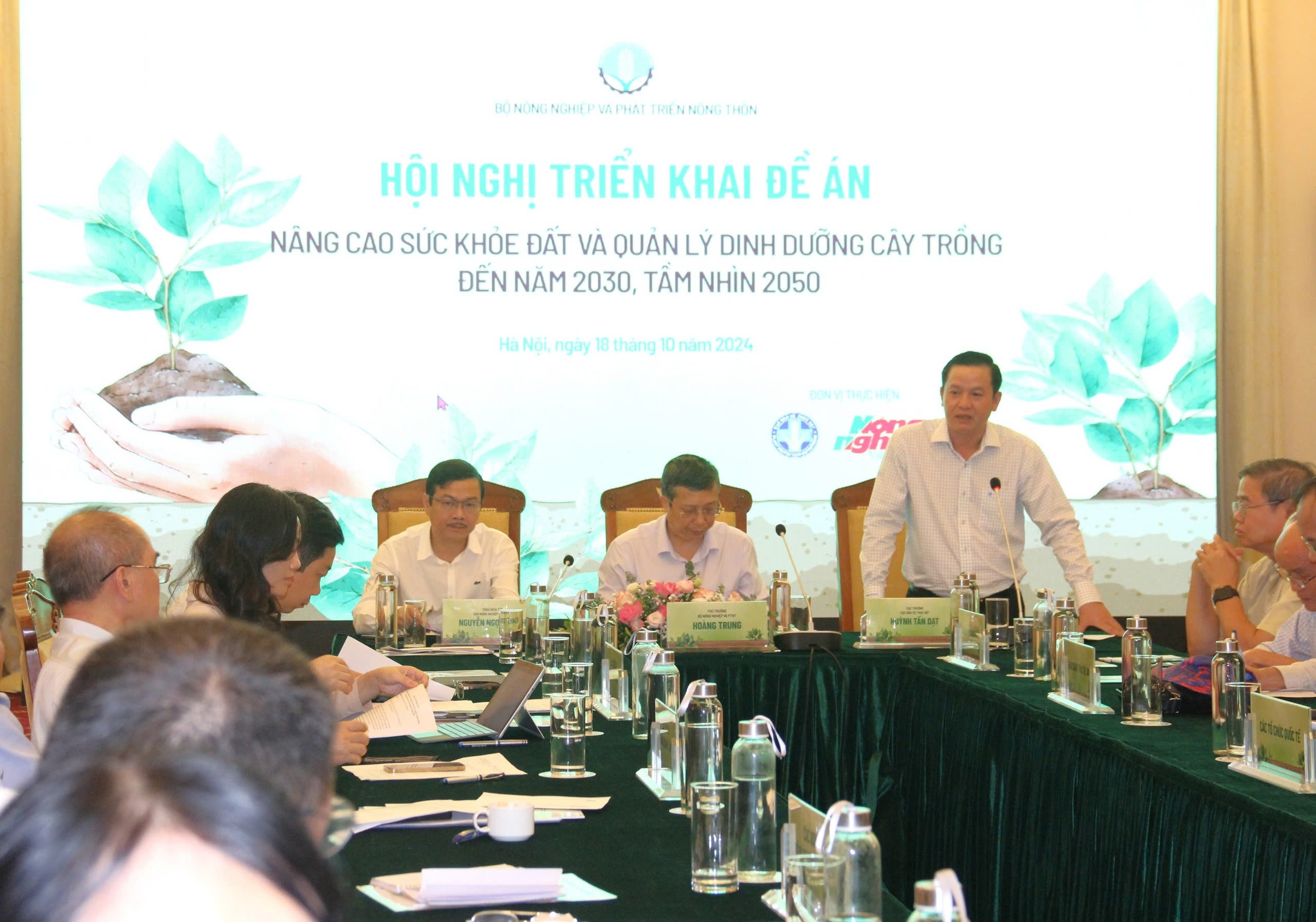 |
| Conference scene |
On October 18, 2024, the Ministry of Agriculture and Rural Development held a conference to deploy the Project "Improving soil health and plant nutrient management to 2030, vision to 2050".
Mr. Vu Thang - Deputy Head of Fertilizer Management Department - Plant Protection Department said that the Project "Improving soil health and plant nutrition management by 2030, vision 2050" aims to improve the effectiveness of State management of soil health and plant nutrition and build a database on the quality of major soil types, in parallel with the use of fertilizers for key crops.
However, Mr. Nguyen Quang Tin, Deputy Director of the Department of Science and Technology (Ministry of Agriculture and Rural Development) said that to have a database on cultivated land, it is necessary to systematize and complete the research. "We propose that by early 2025, the Ministry's research institutes and agencies participating in the Project need to join hands to complete the database," said Mr. Tin.
Regarding soil quality and soil health in general, Vietnam currently does not have much data. Each crop and each land area must have specific numbers to be used, in the context of climate change. On the other hand, Vietnam is firmly on the path of organic agriculture and agriculture that reduces greenhouse gas emissions, so soil data is even more needed.
A representative of the Department of Crop Production said that, with the characteristic that 70% of cultivated land in Vietnam is located on steep terrain, leading to the phenomenon of leaching, degradation, and nutrient depletion in highly intensive farming areas; the excessive use of pesticides also affects the health of the soil and crops.
Cultivated land is seriously degraded due to the practice of growing multiple crops a year; overuse of fertilizers for a long time leads to the soil becoming hard and losing its porosity. Monoculture farming practices take away the nutritional quality of the soil.
Associate Professor, Dr. Vu Nang Dung - Chairman of the Vietnam Soil Science Association commented: "We hope to have a national program to improve soil health associated with crops."
Talking about soil health is probably an unclear concept, not everyone knows. Consider soil as a living body with 3 main components: soil physics, soil science and soil biology. There needs to be a strategy to enhance organic soil with a vision to 2050 and maybe even beyond.
"If the soil is healthy, food production will be safe, people will be healthy and the next generation will also be healthy. This is a long-term, continuous job," said the Chairman of the Vietnam Soil Science Association.
Mr. Dung affirmed that if approved by the Ministry, in the first half of 2025, the Association will complete the task of statistics and classification of Vietnam's soil; by the end of 2025, it will complete the construction of a set of criteria for assessing soil health with agencies of the Ministry of Agriculture and Rural Development.
Dr. Nguyen Dang Nghia - former Director of the Southern Center for Soil, Fertilizer and Environment Research said that the project needs to exploit the potential of dairy and fertilizer businesses, because these businesses have a large source of organic fertilizers and spend a lot of research to produce effective fertilizers.
Currently, Mr. Nguyen Dang Nghia has drafted 6 sets of organic fertilizer formulas, however, the procedure for testing organic fertilizer formulas in Vietnam is still limited, the processing time is long, the cost is high and the process is complicated. This makes businesses, especially small units, hesitant and hinders the sustainable development of the organic fertilizer industry.
Therefore, Mr. Nghia hopes that the Ministry of Agriculture and Rural Development will strongly support the policy and procedure mechanisms, thereby encouraging many businesses to contribute to the Project.
Deputy Minister of Agriculture and Rural Development Hoang Trung said that soil health is an issue of concern to both Vietnam and many countries around the world. Currently, intensive and specialized farming practices, unbalanced use of fertilizers and pesticides, soil pollution due to the development of industrial zones, craft villages, and climate change have seriously degraded soil health.
Deputy Minister Hoang Trung assigned the Department of Crop Production to coordinate with the Plant Protection Department to carefully evaluate each land series in each locality, from which to build a set of criteria to evaluate which land is suitable for which plants. This will also contribute to changing farming practices in a positive direction.
The National Agricultural Extension Center was assigned to coordinate with the Department of Crop Production to organize training for grassroots staff. This was the key factor in bringing the project to life.
Source: https://thoibaonganhang.vn/dat-khoe-san-xuat-thuc-pham-se-an-toan-156870.html


![[Photo] Party and State leaders attend the special art program "You are Ho Chi Minh"](https://vphoto.vietnam.vn/thumb/1200x675/vietnam/resource/IMAGE/2025/5/18/6895913f94fd4c51aa4564ab14c3f250)

![[Photo] Special flag-raising ceremony to celebrate the 135th birthday of President Ho Chi Minh](https://vphoto.vietnam.vn/thumb/1200x675/vietnam/resource/IMAGE/2025/5/19/1c5ec80249cc4ef3a5226e366e7e58f1)
![[Photo] Party and State leaders visit President Ho Chi Minh's Mausoleum](https://vphoto.vietnam.vn/thumb/1200x675/vietnam/resource/IMAGE/2025/5/19/d7e02f242af84752902b22a7208674ac)


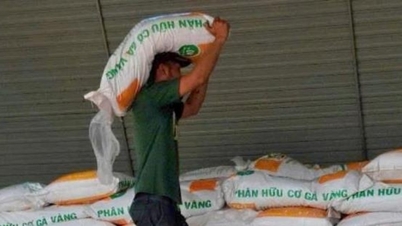



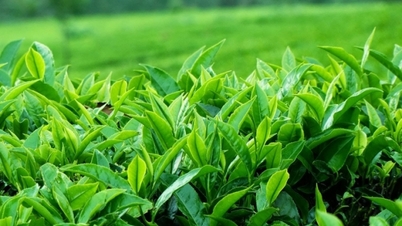

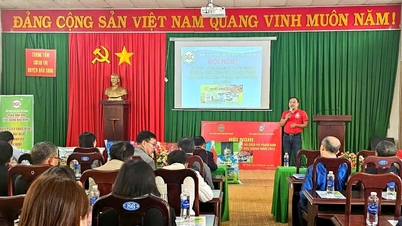
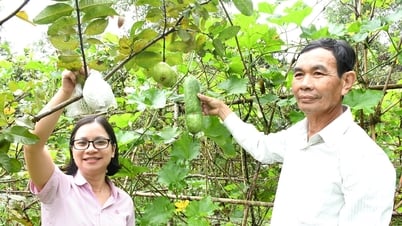
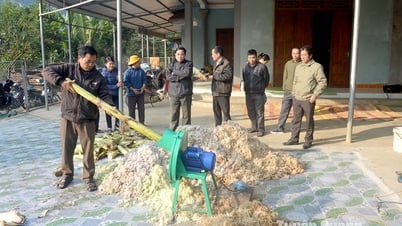
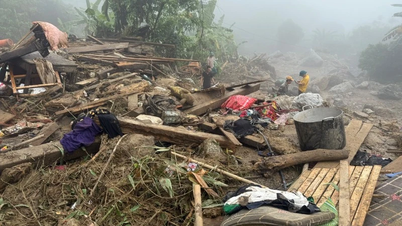

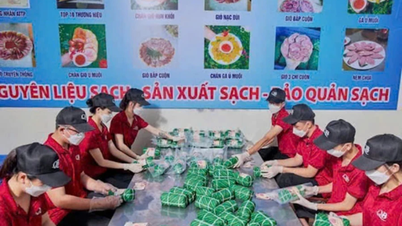

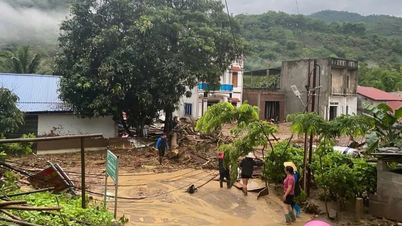
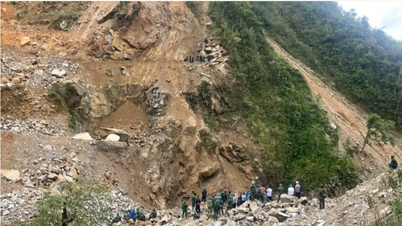

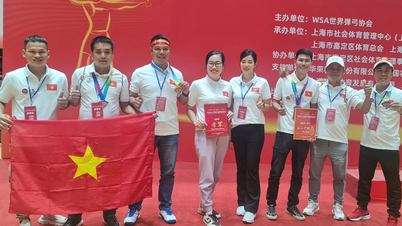



























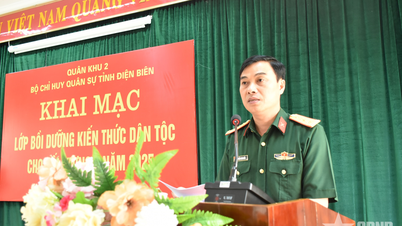




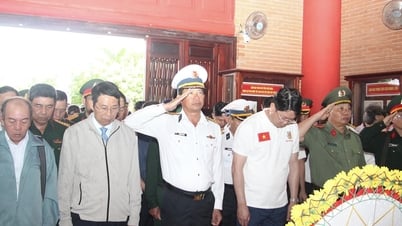

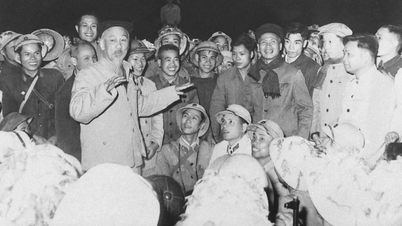


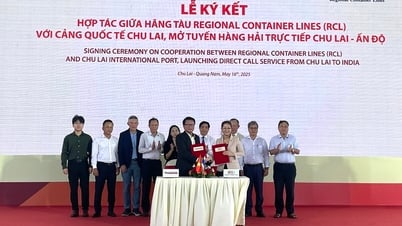





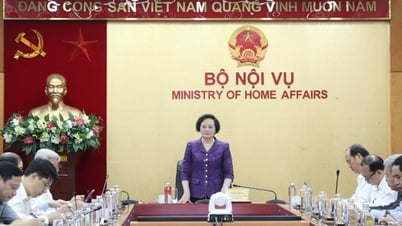










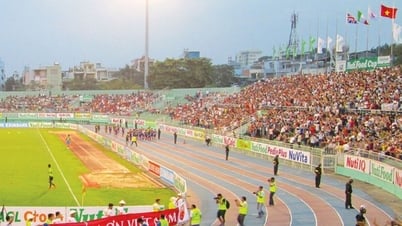
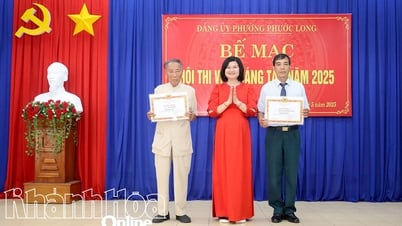






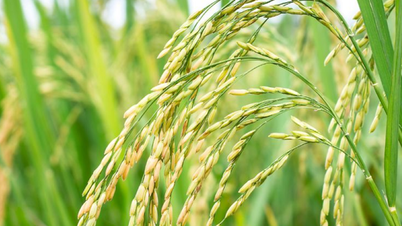










Comment (0)